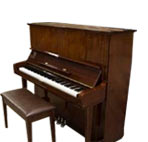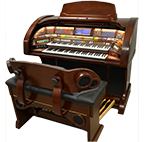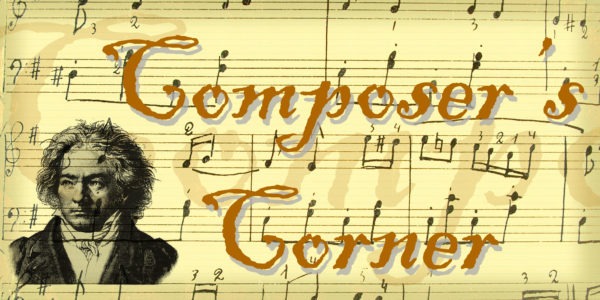Clara Schumann
Born: September 13, 1819 – Leipzig, Germany
Died: May 20, 1896 – Franfurt, Germany
Among women composers and musicians in the 19th century, Clara Wieck Schumann enjoyed the most fame during her lifetime and is still the best known today. Born in Lepzig, Germany in 1819 into a musical family, Clara began piano lessons at the age of five with her father, Frederick Wieck, an esteemed piano teacher who quickly recognized her talent and devoted all his energies into creating a full-blown musical prodigy. A domineering taskmaster, he insisted on long hours of practice as well as immersion in languages and music theory. In 1830, Clara made her first public solo appearance in Leipzig. The same year, she left for Paris, where Nicolo Paganini offered to appear with her. She was eleven years old.
Around that time, another promising young pianist, 20-year-old Robert Schumann, abandoned his law studies in Leipzig to take music lessons with Herr Wieck and lodge with the Wieck family. During the following years, Robert and the young Clara grew close and despite vehement opposition from Herr Wieck, they became secretly engaged. Wieck viewed the marriage of his daughter as an obstacle to her splendid concert career, in which he had invested so much. A bitter estrangement between father and daughter culminated in the young couple applying to court for permission for Clara to marry without her father’s consent. In 1840, a decision was given in their favor, and they married on September 12th, of that year.
With two active musicians in the family, there were inevitable conflicts. For years, Clara Wieck had enjoyed extraordinary success as a virtuoso pianist. After her marriage she was determined to continue on this path. Robert, however, had his own needs, which not incidentally limited Clara’s piano practice when he was composing. In spite of his spells of depression and the responsibilities of having eight children, the couple pursued an intense musical life together, she primarily as a concert pianist, he as a composer.
Performing works by Chopin, Mendelssohn and other Romantic era composers, including pieces by her husband, Clara Schumann earned the respect and admiration of most of the leading musicians and writers of the time.
Robert, meanwhile, encouraged Clara to compose, secretly publishing a collection of songs she wrote during their first year of marriage and presenting it to her on their first anniversary. She had begun composing as a child and continued through her middle years, producing a body of work that included songs, piano pieces, a piano concerto, a piano trio, choral pieces and three Romances.
After Robert’s death in 1856, Clara Schumann lost confidence in herself as a composer, devoting herself largely to the interpretation of her late husband’s works. A woman of great strength, she endured not only the loss of her husband, but the death of four of her eight children. She supported her remaining family through concertizing and teaching.
Her close friendship with Johannes Brahms, begun in 1853 when he was just twenty, continued throughout her life. Her last public concert in 1891 was a performance of Brahms’ Variations on a Theme by Joseph Haydn. By this time, her concert career had spanned over 60 years.
Five years later, Clara Wieck Schumann suffered a stroke, dying on May 20 1896 at the age of 77. She is buried in the Old Cemetery in Bonn beside her husband.











